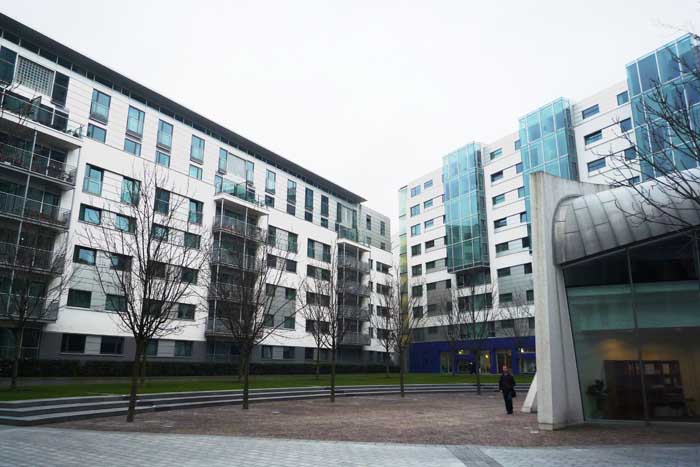News - Construction News
First-tier tribunal breaks new ground in Building Safety decision

When the First-tier Tribunal handed down its decision in the Empire Square case this summer, it marked more than the latest skirmish in the post-Grenfell push for safer buildings. For developers, it removed further barriers for applicants and potentially opened the door to a wave of further claims.
The Tribunal confirmed that it may issue Remediation Orders (ROs) even where a developer has signed up to the Deed of Bilateral Contract with Self Remediation Terms (the SRTs) and can grant Remediation Contribution Orders (RCOs) covering future costs (including cost of works beyond the scope of what is required under the SRTs) and – crucially – litigation costs. In doing so, the ruling acts as a further reminder that the Building Safety Act 2022 (BSA 2022) is not just a cautionary framework but a potent lever for delivery.
Developers will not be able treat the SRTs as a shield; delay now carries the risk of direct enforcement under the BSA 2022 and cost awards, that were previously difficult to obtain from the Tribunal.
The BSA 2022 was born out of the Hackitt Review’s hard lessons after Grenfell. Its twin aims are to ensure that life-critical fire safety defects are fixed and to protect leaseholders by making sure those liable do, in fact, foot the bill. To achieve this, Parliament created new enforcement tools including:
- ROs to mandate remedial works; and
- RCOs to order who should be liable for the remedial costs (and in what proportion).
Yet, until Empire Square, parties (win or lose) had to pay their own legal costs when applying for ROs/RCOs (save for exceptional circumstances) and there was uncertainty around whether an RO/RCO would be made in circumstances where Developers had signed up to the SRTs.
Whilst not binding on other Tribunals, the Empire Square signals the approach the Tribunal will be likely to take in future cases.
Developed by Berkeley Group Holdings and owned by Fairhold Athena, the 500-flat Empire Square scheme in South London has languished under a decade of cladding and facade defects. A 2023 improvement notice from Southwark Council was neither appealed nor complied with. In 2022 Berkeley signed the Developer Pledge and in March 2023 signed up to the SRTs. By April 2025, remedial work had yet to begin, and leaseholders sought an RO against Fairhold; Fairhold in turn applied for an RCO against Berkeley.
Key takeaways for developers
Safety trumps blame
The Tribunal applied a purposive test: it asked whether an RO would best secure safety, not who was at fault. This emphasised that the BSA 2022 was not about fault-finding but outcome-driven enforcement and resolution.
Pledges are “Neutral”
By ruling that signing the Developer Pledge or the SRTs is a “neutral,” factor when determining whether to make an RO, the Tribunal signalled that it will not act as a legal shield. Developers must treat the Pledge and the SRTs as a starting point only. The Tribunal highlighted that the SRTs often fall short of the standards set by the BSA 2022; in particular the costs of interim measures such as waking watch, generally are irrecoverable under the SRTs but can be recovered via an RCO and the repair standard in SRTs (“tolerable risks”) was said to be lower than the BSA 2022 requires.
RCOs for tomorrow’s bills – including legal fees
Perhaps the most transformative element is the extension of RCOs to cover litigation costs and to act as an indemnity for future unquantified expenses incurred “in connection with” remediation. This represents a form of one-way cost shifting in favour of applicants, enabling leaseholders (or building owners) to recover legal fees from developers through an RCO rather than having to prove “unreasonable conduct” under the Tribunal rules.
Suspended orders as a final nudge
Rather than immediately enforcing ROs and RCOs, the Tribunal suspended both orders, giving Berkeley one last chance to commence works. If it fails to progress with the works, the orders kick in instantly – no new hearing, no fresh application. This hybrid approach melds flexibility with teeth.
For developers, a lot of whom, will be feeling the brunt of the BSA 2022, the Empire Square decision has the real potential to invite further claims from building owners and leaseholders. Remediation is often not straightforward; complex programmes, lack of recourse, delays relating to access and with regulators can all delay on-site progress. The onus is very much being placed on developers with the risk of:
- Potential full costs liability for more extensive works than required under the SRTs to meet higher standards and therefore having to contribute higher costs of instructing a third party contractor (rather than using its own professional at preferential rates).
- The liability for litigation costs where applications are issued.
To stay ahead, developers should:
- Audit and prioritise fire-safety risks: carry out a building-by-building review of all higher-risk assets, mapping hazards and setting out a clear remediation roadmap. Where possible, keep control of the works including agreeing to do what is required under the SRTs rather than waiting for leaseholders and building owners to apply for an RCO.
- Secure and confirm funding: translate financial commitments into legally binding contracts, align payment milestones with safety interventions and verify that contributions from all parties are on track.
- Turn plans into contracts and schedules: fast-track mobilisation of suitably competent contractors, while retaining key documents to support extended-limitation and defect-remediation claims.
- Review third-party agreements and insurance cover: update professional indemnity policies, group guarantees and contractual terms to seek to obtain a joint and several liability.
- Engage leaseholders and freeholders: maintain open, ongoing dialogue to pre-empt complaints and to try and resolve matters without those with a legal or equitable interest in the development from using the provisions available to them under the BSA 2022 to force action. Build consensus with all stakeholders around urgent safety works.
Although the Empire Square ruling is a first-instance decision and may be appealed, its reverberations are already reshaping developer strategies. The message is unmistakable: the Tribunal will not allow safety will not be deferred, and delayed remediation brings decisive legal and financial consequences.
For those dedicated to building and safeguarding Britain’s housing stock, the guidance is clear: plan proactively, act swiftly and resolve risks on your terms, before a tribunal compels the outcome.
Article submitted by: Lewis Couth, Partner in our Real Estate Litigation team.
If you would like to read more stories like this, then please click here
Related Articles
More News
- Southern Construction Framework announces Suppliers’ Days ahead of £5.4 billion tender
4 Mar 26
Southern Construction Framework (SCF) will be hosting a series of Suppliers’ Days part of its
- Ayesa–Egis JV wins key role on HS2 track systems contract
27 Feb 26
The engineering consultancies will provide services for the delivery of track infrastructure for HS2.
- Britain’s growth sectors to get major skills boost from new ‘fast track’ apprenticeships reforms
26 Feb 26
The UK Government has introduced a set of reforms aimed at accelerating the development and






